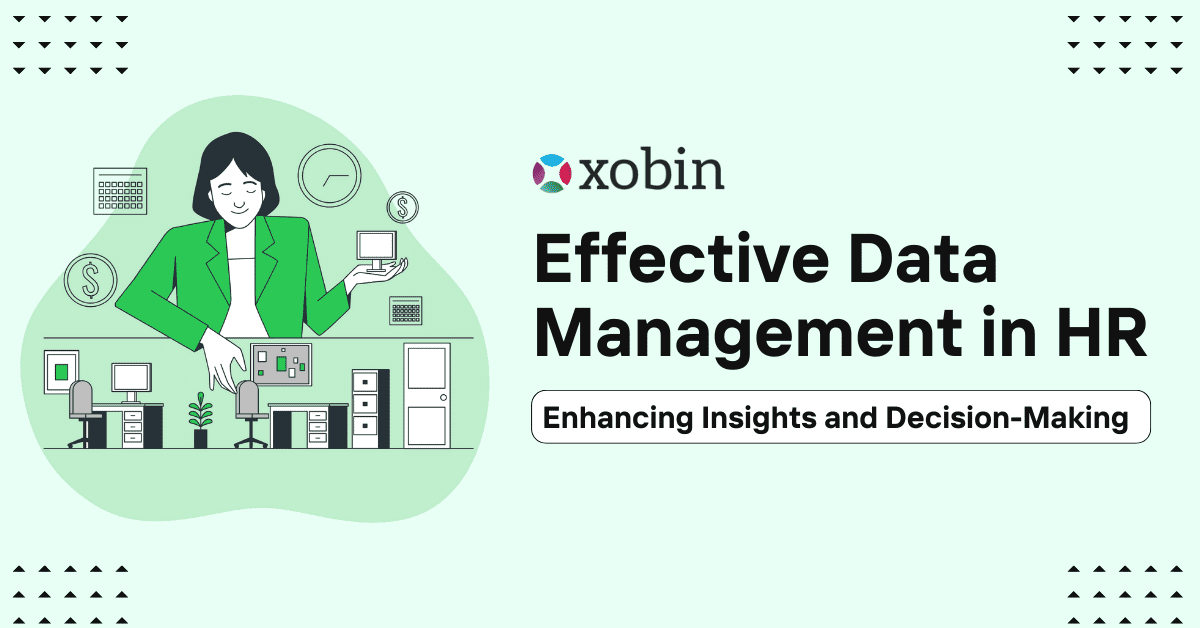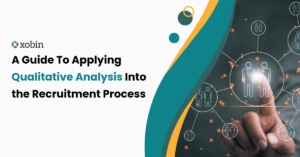Learn how HR analytics and data-driven decision-making can transform traditional HR management for your organization’s success. Ensuring your workforce is productive, engaged, and satisfied is crucial. However, relying solely on intuition and experience can lead to biased and subpar outcomes. By implementing AI-driven HR software, you can make informed decisions and achieve better results. Embrace the innovative future of HR management and unlock the full potential of your workforce.
Table of Contents
What is Management in HR Analytics?
Discover how management in HR analytics can transform your HR department. Stay ahead of the curve and accurately measure key HR data to improve the efficacy of HR activities. By identifying patterns and trends in employee pay, benefits, training, and other processes, you can enhance almost all areas of human capital management in HR. Streamline your recruitment, compensation, and performance management efforts with data-driven decision-making. With HR analytics, achieve a better understanding of your workforce and improve organizational outcomes.
Benefits of Effective Data Management in HR
HR analytics uses data and statistical analysis to inform HR decisions and improve HR outcomes. By collecting and analyzing data on various HR metrics, such as employee turnover, engagement, and performance, organizations can gain invaluable insights into their workforce and make data-driven decisions.
Discover the endless advantages of analytics management in HR and data-driven decision-making. Here are some key benefits:
- Improved Decision-Making: By relying on data, organizations can make informed HR decisions backed by objective evidence, rather than intuition.
- Increased Efficiency: Uncover any inefficiencies within your HR processes and make valuable improvements that can save your business valuable time and resources.
- Better Talent Management in HR: Through HR analytics, identify high-performing employees and future leaders, providing opportunities for better management in HR and talent development.
- Reduce staff turnover and boost engagement with HR analytics: Identify the factors driving staff away and take action to address them, cutting costs and disruptions.
- Get insight: Insights into the factors that motivate staff and actions you can take to boost productivity. Gain a motivated, productive workforce with HR analytics.
Effective HR management in modern organizations depends on analytics and data-driven decision-making. However, establishing this approach requires significant investments in tools, technology, and expertise. Companies need to have the right resources to gather and analyze data, along with skilled professionals who can interpret the insights and make informed decisions.
What is Needed for Effective Management in HR?
- Revamp your HR management strategy with data-driven decision-making.
- Identify crucial HR metrics like employee retention, engagement, and productivity.
- Collect and meticulously analyze relevant data using HR information systems, surveys, or focus groups.
- Leverage this information to make informed HR decisions, including recruitment, training, and performance management.
- Continuously monitor the effectiveness of these decisions, utilizing new data to improve outcomes and drive progress.
How Does Management in HR Data Analytics Improve Decision-Making?

Payroll Optimization
As the biggest cost for many businesses, payroll expenses require diligent attention and control. HR analytics can help you create reports on payroll costs and monitor overtime expenses per position, department, and location. By accessing data that breaks down and scrutinizes your complete payroll expenditure, you’ll be able to determine policy adjustments that can help you handle labor expenses more efficiently.
Cost-effectiveness
Discover if your employee benefits are meeting their needs with HR data analytics. Generate reports to identify which benefits are most in-demand and calculate your total benefits expenses. Cut costs while maintaining competitive and comprehensive benefits through data analysis.
Measure the success
To build a skilled and capable workforce, providing diverse learning opportunities to employees is vital. Utilizing HR analytics to evaluate employee training hours and promotion rates can help assess the effectiveness of your current employee development strategies and identify areas that require further training.
Improved understanding of feedback
To build a skilled and capable workforce, providing diverse learning opportunities to employees is vital. Utilizing HR analytics to evaluate employee training hours and promotion rates can help assess the effectiveness of your current employee development strategies and identify areas that require further training.
Support diversity and inclusion goals
According to a recent survey by the HR Policy Association, managing diversity and inclusion is the foremost concern among HR executives in 2021. The use of HR data analytics can aid in creating a more diverse and inclusive work culture. Metrics such as the diversity of new hires and pay equity among employees can be tracked with this technology. Additionally, HR analytics can also produce EEOC reports mandated by law for your organization.
Conclusion
Data-driven HR management with analytics has become an integral part of the modern workplace. It enables organizations to make objective, evidence-based decisions and develop effective strategies for managing their workforce. A thorough analysis of data helps establish a better understanding of employee needs and expectations, ultimately leading to improved organizational outcomes. With adequate resources and technology in place, businesses can make informed management HR decisions.






